by Brian Hioe
語言:
English /// 中文
Photo Credit: Photo Phiend/Flickr
REGARDING THE present state of Taiwanese-American politics, one often sees a gap in political understanding between Taiwanese-Americans and Taiwanese first generation immigrants. This has become a dividing line of significance in Taiwanese-related politics in America in the present, as very much visible in overseas responses to the past two years of political crises. As such, it might be of worth to reflect upon the differences between Taiwanese-Americans and Taiwanese where their understandings of Taiwanese politics are concerned.
Namely, one often finds that what takes place in America can be disproportionately influential in Taiwan, as a result of the historical relationship between the United States and Taiwan. Thus, pro-Taiwan politics in the United States would be quite important. However, it is that Taiwanese-Americans and Taiwanese do not always have the same understanding of Taiwanese politics and this ends up having practical effect on Taiwanese-related politics in the United States.
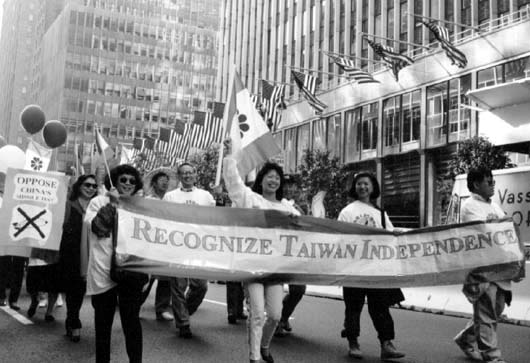 Photo credit: taiwandc.org
Photo credit: taiwandc.org
Obviously, it is not possible to generalize about Taiwanese-Americans homogeneously as a group, but I will venture some observations based on my experience, with a focus on individuals in pro-Taiwan groups and organizations operating in the US, particularly those individuals in those groups and organizations involved in lobbying Washington or the US government to provide aid to Taiwan. Likewise, to avoid confusion, by Taiwanese-American, I refer for the most part exclusively to second-generation Taiwanese-Americans—meaning those born in the United States or who moved to the United States at an early age. To clarify, the meaning of hyphenated American terms as Taiwanese-American can sometimes also refer to first generation immigrants, but at least based on personal perception, the term seems to have in recent years shifted to a meaning much more exclusively referring to second-generation immigrants.
In this way, I will restrict my discussion of Taiwanese-Americans to primarily the second-generation. For a discussion of the first generation immigrants during an earlier historical period, one can do no better than Linda Gail Arrigo’s magisterial “Patterns of Personal and Political Life Among Taiwanese-Americans”—invaluable reading not only for Taiwanese-Americans themselves, but also any Taiwanese living in the United States involved in pro-Taiwan politics, and anybody else hoping to better grasp Taiwanese-American politics.
A Preoccupation with China by Taiwanese-Americans which Taiwanese Themselves Lack?
FOR MANY Taiwanese-Americans, Taiwan is primarily a heritage concern. Pro-Taiwan politics is part of their heritage, due to the fact that they are for the most part descended from pan-Green households.
Yet this would be the beginnings of the difference between Taiwanese and Taiwanese-Americans. Sometimes the purely cultural understanding of Taiwan leads to differences in a sense of identity. Namely, in America, drawing distinctions between Taiwanese and Chinese is quite often an abstraction for Taiwanese-Americans. After all, in the mass of East Asian immigrants in America, Taiwanese and Chinese do in fact look the same. And if Taiwanese and Chinese both speak Mandarin—regardless of differences in vocabulary or accent—these are equally indistinguishable languages for Taiwanese-Americans that do not have any understanding of Mandarin. So, too, even for families that speak only Taiwanese Hokkien—between Mandarin as generally spoken by Chinese and Taiwanese Hokkien as spoken exclusively by Taiwanese. If both are not languages that Taiwanese-Americans know, being equally incomprehensible or even equally indistinguishable languages to Taiwanese-Americans, it is not exaggerating to say that it all might as well be Greek.
Taiwanese-Americans, even those from pan-Green households, actually often have no real sense of what any real substantive differences would be culturally between Taiwanese and Chinese, apart from the basic fact that Taiwan is run by a different government which has, to their knowledge, free and democratic elections while China currently has a government which does not allow for democracy. Given their inability to communicate and engage with either Taiwanese or Chinese on a substantive level due to lack of the required linguistic skills, Taiwanese-Americans come to see the primary difference between Taiwan and China as that Taiwanese is a democracy and China is not, rather than there being significant differences of culture, history, and identity between the two. Accordingly, arguments for why Taiwan’s existing de facto independence from China should be preserved is also thought of on the basis of that Taiwan is a democracy but China is not and rather than because of, say, the right to self-determination of the Taiwanese people on the basis of their not identifying with China.
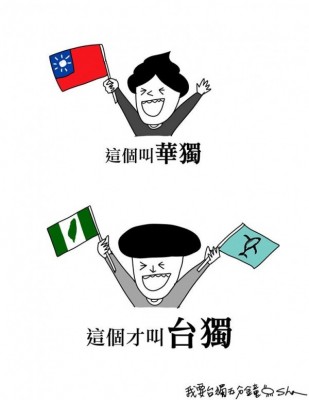 The conflation of the “Republic of China” with “Taiwan” among Taiwanese-Americans sometimes takes the view that the difference between the two is only semantics. Photo credit: 我要討厭你五分鐘
The conflation of the “Republic of China” with “Taiwan” among Taiwanese-Americans sometimes takes the view that the difference between the two is only semantics. Photo credit: 我要討厭你五分鐘
Thus, with regards to differences in senses of identity, for example, one sometimes finds a sense of partial identification with China which Taiwanese in Taiwan themselves do not hold. At a time in which Taiwanese identity is moving towards definition as exclusively identification with Taiwan and precluding identification with China. Taiwanese-Americans may otherwise identify with symbols of the Republic of China, with the view that the ROC is Taiwan, when this is anathema to many Taiwanese—and even when such Taiwanese-Americans themselves are descendants of pan-Green households. One otherwise finds among Taiwanese-Americans that there remains a general sense of identification with a cultural China (中華文化) which Taiwanese themselves would shy away from, even if such Taiwanese-Americans do not see Taiwan as being part of China, and are otherwise involved in pro-Taiwan efforts to maintain Taiwan’s de facto independence from China.
In other cases, there are Taiwanese-Americans who are very insistent that they are not Chinese-Americans. That is, in many cases, Taiwanese-Americans reflexively assert that they are not Chinese—sometimes quite vocally. However, when one pushes on the issue, one oftentimes finds that this is a reflexive concern and only that, and they are really unable to say what makes Taiwanese different from Chinese at all. At worst, when pushed further on the issue, drawing distinctions between Taiwanese and Chinese sometimes just consists imbibes of the old, tired ethno-nationalist tropes about Chinese as uncivilized or lacking manners as compared to Taiwanese.
Consequent China-Centrism in American Pro-Taiwan Politics, Lack of Consideration of the KMT as a Threat to Taiwanese Democracy
THAT IT IS primarily a heritage concern for Taiwanese-Americans that they concern themselves with Taiwan and yet they most commonly distinguish Taiwan and China on the basis of Taiwan being a democratic and only that reason, we find that the politics of Taiwanese-Americans primarily come to revolve around the view that the threat to Taiwanese as coming primarily from China and that this is what must be defended against. As result of their own American experience, in which the political and economic rise of China is constantly discussed, this is what seems like the more concrete threat to Taiwan for them than domestic threats within Taiwan such as the KMT—ironic when this comes at a time in which domestic, not international issues seem like the main priority for Taiwanese themselves, as we saw with the precedence of domestic issues over cross-strait ones during past elections.
Consequently, one generally finds little understanding of the KMT and the threat it poses to Taiwanese democracy from Taiwanese-Americans. This is in several respects. Firstly, Taiwanese-Americans are rather hasty to conclude that because Taiwan has free, democratic elections in the present, Taiwan is a democracy like the United States. In part, this is because of the poverty of the existing English language literature about Taiwan, a great deal of which is politically conservative in nature, tinged by the remaining traces of a Cold War mentality, and cheerleads the achievements of Taiwanese democracy in order to juxtapose Taiwan to undemocratic, godless Communist China.
But also part of it would be Taiwanese-Americans of projecting their own American experience onto Taiwan, given they usually lack sustained direct experience of Taiwan. The United States seems to most Taiwanese-Americans like a democracy and so Taiwanese-Americans have difficulty imagining any nation which is not a democracy—or more to the point, conceptualizing a nation which is in some ways a democracy but in other ways is not, as a recently post-authoritarian country. Taiwanese-Americans also come to see the two party political system in America as the end-all-be-all of politics worldwide, though this is hardly exclusive to Taiwanese-Americans.
Consequently, the KMT becomes thought of as one of two political parties in Taiwan and a “normal” political party in that sense. At best, the KMT is thought of as something no worse necessarily than the Republican Party. There is a failure to grasp the uneven nature of power in Taiwan as a result of the fact that the KMT was once the only political party and that it still has ties to the lingering remnants of the party-state.
Pro-Taiwan politics in the United States becomes rather China-centric in focus as a result, with considerations of Taiwan’s domestic politics dropping out of the equation. There is a failure to understand how Taiwan’s democracy is in fact internally insecure as a result of the KMT’s attempts to continue to cling to power. Again, returning to this emphasis on Taiwan as needing to be defended from godless, Communist China, Taiwan becomes something which is seen as having completed its democratic transition and which must be defended against terrifying, undemocratic China, rather than something which both faces the external threat of China and the internal threat of the KMT. Accordingly, pro-Taiwan politics in the US actually becomes oddly China-centric and fails to address the KMT in any way.
A Failure to Grasp the Concrete Effects of International Exclusion on Taiwan
IN RECENT YEARS, in pro-Taiwan politics in the US, we have seen backing away from concrete solutions to permanently resolve Taiwan’s status of international marginalization That is, Taiwan-related politics in the United States has primarily shifted towards the defensive, negative posture of calling for the preservation of Taiwanese democracy, as seen in shifting towards slogans such as “Keep Taiwan Free”, rather than calling for the realization of any positive political program, such as admission of Taiwan to the UN—much less calls for Taiwanese independence.
This appears to be the product of a lack of imagination about the need of securing Taiwan’s status in the world with firmer grounds rather than just preserving the status quo and hoping for the best. But we may argue this is a product of the generational shift from first generation Taiwanese immigrants to second generation Taiwanese-Americans taking on the onus for pro-Taiwan politics in the United States.
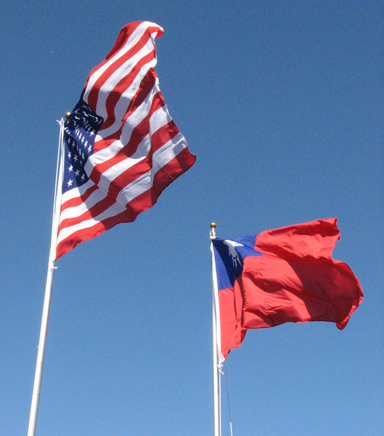 Photo credit: CNA
Photo credit: CNA
Unlike their forebears, having been born in and grown up in in the most powerful nation in the world, Taiwanese-Americans generally have a difficulty comprehending the state of living in a small nation, or a nation whose grounds for continued existence are insecure. Consequently, this leads to a failure to grasp that preserving the status quo and simply hoping for the best without pursuing a permanent means of securing Taiwan’s status in the world may not simply be a viable option, if China’s political and economic rise means that China will become more aggressive in its actions towards Taiwan—and it can get the rest of the world to accept its claims over Taiwan, Taiwan faces an existential threat from China. But Taiwanese-Americans have, in many cases, just not thought through what it is to live in a small nation which faces an existential threat from a larger country given that they grew up in a large, powerful country. And this is part of why finding a way to permanently secure Taiwan’s place in the world does not seem like such a priority to many Taiwanese-Americans.
Furthermore, because Taiwan is perceived from a distance by Taiwanese-Americans as a de facto sovereign nation-state, there is a lacking sense of what the concrete effects of Taiwan’s marginalization from the world are. For example, during health crises as disease outbreaks, Taiwan’s exclusion for international bodies leads to slowdowns in international aid arriving in Taiwan, something that may lead to loss of life. Such is what it is to live in a country which in some ways is not exactly a first world nation. But this, too, escapes the grasp of many Taiwanese-Americans.
No Consideration of Solutions for Taiwan Apart From America Coming to the Rescue
BUT WE CAN also point to ties between Taiwanese-American’s sense of identity and the limitation in the political solutions that they see to Taiwan’s current state of unbelonging in the world. Taiwanese-Americans see very few other solutions for preserving Taiwan’s state of de facto independence against Chinese claims on it than having America rescue Taiwan. Nowhere is it ever questioned whether, in fact, America would be reliable as Taiwan’s sole guarantor for Taiwan’s security against Chinese threats when it is currently perfectly happy to leave the question of whether or not it would defend Taiwan in a state of limbo as part of its gambit of strategic ambiguity—and when America spent decades backing the KMT’s authoritarian rule in Taiwan, without which the KMT could not have maintained itself as a regime.
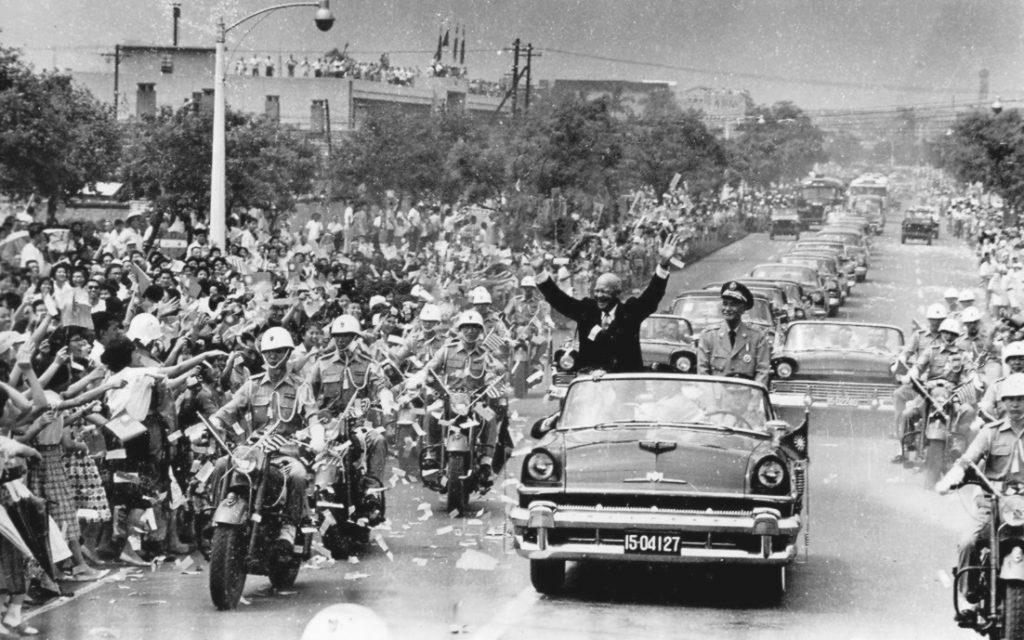 Chiang Kai-Shek and Dwight D. Eisenhower in 1960
Chiang Kai-Shek and Dwight D. Eisenhower in 1960
If having America save Taiwan is the only solution Taiwanese-Americans see to Taiwan’s dilemma, it is very convenient for Taiwanese-American’s sense of identity to have America—the country they grew up in and live in—to save Taiwan, conceptualized as their cultural mother country. So, then, does this too return to a failure to think outside of using America as the rubric to evaluate the world as a whole.
If there is awareness of the means by which America has a tendency of using small countries for its foreign policy ends, never mind the consequences faced by those small countries, this is only thought of as an abstraction. Again, there is no real sense of what it is to live in a small country at the mercy of larger ones and the fact that America even in the present uses Taiwan for its strategic ends—keeping Taiwan in a state of strategic limbo for the sake of its own security concerns, and sometimes quite directly extorting the Taiwanese market in return for security assurances. Nevertheless, blind pro-Americanism this has generally been a shortcoming of the overseas Taiwanese movement writ large, not just in regards to Taiwanese-Americans.
Lack of Self-Criticality About Identity as Returning to a Lack of Experience in Taiwan
IN SPITE OF obvious differences between themselves and Taiwanese, sometimes it becomes that Taiwanese-Americans do represent themselves directly as being Taiwanese, as though they themselves could speak for Taiwanese without any sense of mediation. And in this way, it becomes that Taiwanese-Americans come to influence the representations of Taiwan abroad—and not always in the way that Taiwanese themselves would have it. In failing to be self-conscious about the differences between themselves and Taiwanese—imagining that they can speak directly for Taiwanese, as though there was not a gap between themselves and Taiwanese—much of this returns to a failure by Taiwanese-Americans to be self-conscious and self-critical about the limitations of their own identity.
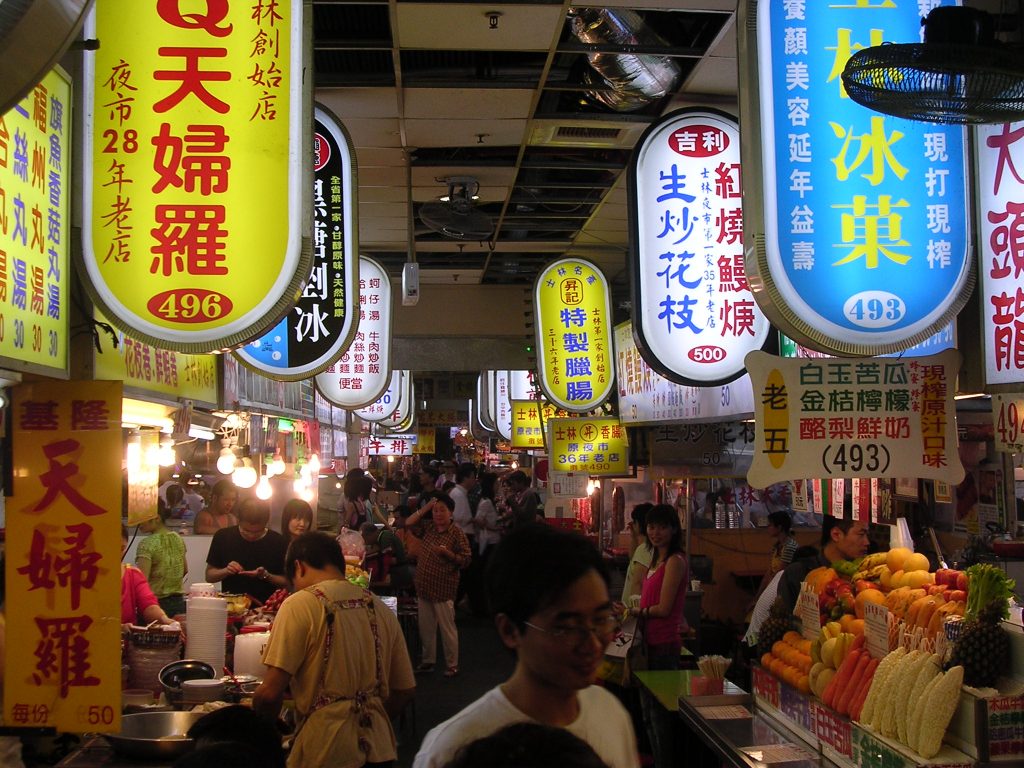 Photo credit: WikiCommons
Photo credit: WikiCommons
But the gap in the knowledge of Taiwan on the part of Taiwanese-Americans should not be surprising. In most cases, Taiwanese-Americans have not spent any significant amount of time living in Taiwan and lack the ability to communicate with Taiwanese in their native tongue. When one can only engage with Taiwanese who have good English, that becomes a very limited set of individuals who tend to already have much contact with the international world and a failure to truly come into contact with Taiwan. Thus, understanding of Taiwan continues to be filtered through what are always quintessentially American concerns.
Indeed, as a sign of this, where the cultural politics of Taiwanese-Americans are concerned, one finds that Taiwanese-Americans tend to conceptualize Taiwan much as tourists do, in thinking of Taiwan in terms of these food and tourist attractions and the like. This is because Taiwanese-Americans’ experience of Taiwan—perhaps only spending several days there every few years—is not all that dissimilar to foreigner tourists, with visiting tourist sites and local eats being what comprises the majority of their actual, temporal experience of Taiwan. However, in the cases that Taiwanese-Americans do seek out what they purport to be deeper engagement with Taiwan, it also need be pointed out that Taiwan sometimes then becomes the canvas upon which they project their idealized imaginary cultural homeland—not Taiwan as it actually is. This returns to the issue that Taiwanese-Americans have, for the most part, not had the linguistic or cultural immersion experiences which would allow them to know Taiwan far better from the inside out.
Conclusion
I WRITE THIS essay after being asked to to write on my perceptions of why Taiwanese-Americans seem to differ so much from Taiwanese in their views of what pro-Taiwan politics in the US should be, seeing as myself am a Taiwanese-American who has become sucked into Taiwanese politics after being caught up in the 2014 Sunflower Movement and unexpectedly becoming involved in the founding of New Bloom Magazine after the end of the movement.
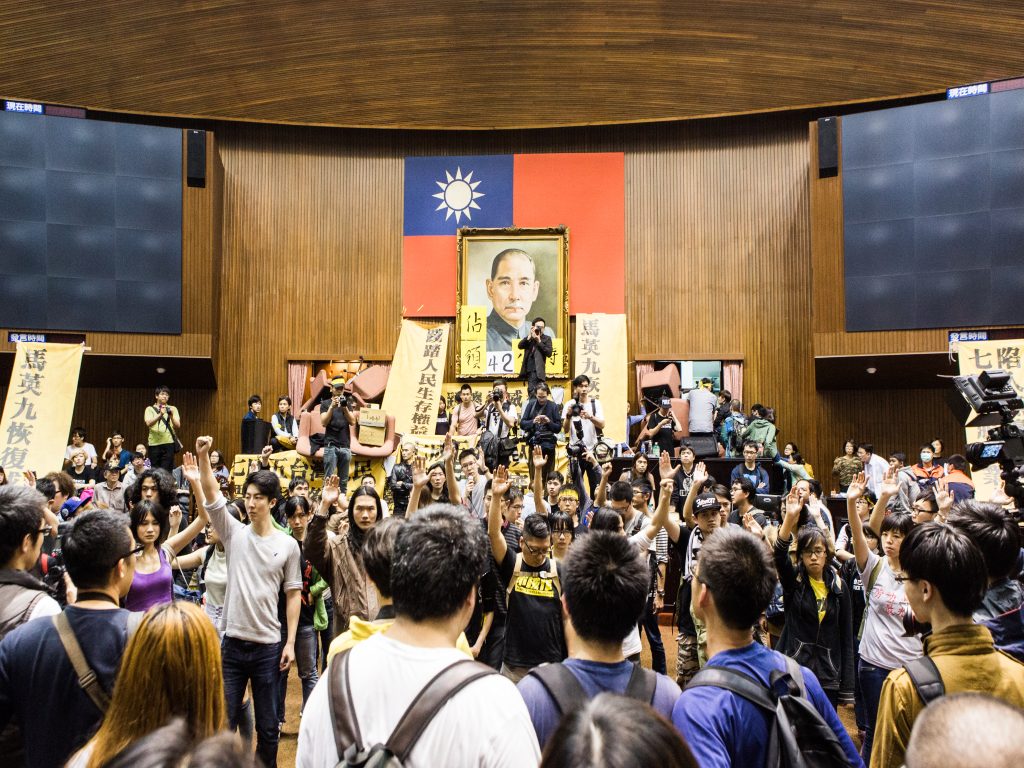 The occupied Legislative Yuan during the Sunflower Movement. Photo credit: Democracy at 4 AM
The occupied Legislative Yuan during the Sunflower Movement. Photo credit: Democracy at 4 AM
Without sounding arrogant, I realize I have several advantages over other Taiwanese-Americans. These include, for example, much higher language abilities from the get-go, a longer period of time spent living in Taiwan, and an academic background in the Asia Studies. I also find coming at the problem of Taiwanese-American politics from an implicitly Leftist perspective and coming from what is in fact a deep Blue rather than a pan-Green family background insulates me ideologically from many of the political and ideological assumptions made by Taiwanese-Americans about Taiwan.
For one, I actually have little faith in the US government majestically descending on high to save Taiwan as the ultimate solution to Taiwan’s woes to begin with, given my academic research into the history of post-WWII political order in Asia set up by America and my Leftist perspective as arrived at through the examination of that history. I do not also see Taiwan avoiding Chinese annexation but remaining subordinate to America in international affairs as any real realization of sovereignty or self-determination for Taiwan—which I see as Taiwanese deciding their own affairs for themselves, without undue interference by other countries, this regardless of what those countries are. Likewise, if I find that many Taiwanese-Americans see the KMT as no worse than the Republican party and fail to grasp the party’s fundamentally undemocratic nature, I generally know the KMT from the inside out far better than most Taiwanese-Americans do because of my deep Blue and not pan-Green family background. Yet sociologically speaking, I am not necessarily too different myself in background from the Taiwanese-Americans I describe, and as a result, among Taiwanese-Americans, I do not claim anything particularly different about myself except for my politics.
If much of this essay sounds like simply criticizing many Taiwanese-Americans for being especially privileged and failing to see the world outside of the perspective of American privilege, certainly, that would be part of it. As pointed out by Linda Arrigo all too well in “Patterns of Personal and Political Life Among Taiwanese-Americans”, this returns to the class basis of many Taiwanese-Americans. Because of the relatively economically well-off status of the majority of Taiwanese-Americans, they have scarcely seen the dark underbelly of America domestically and abroad. They thus imagine that it would be perfectly fine and well if America comes to the rescue of Taiwan with little thought of the consequences, and their political worldview ultimately returns to how it is shaped by their socioeconomic status.
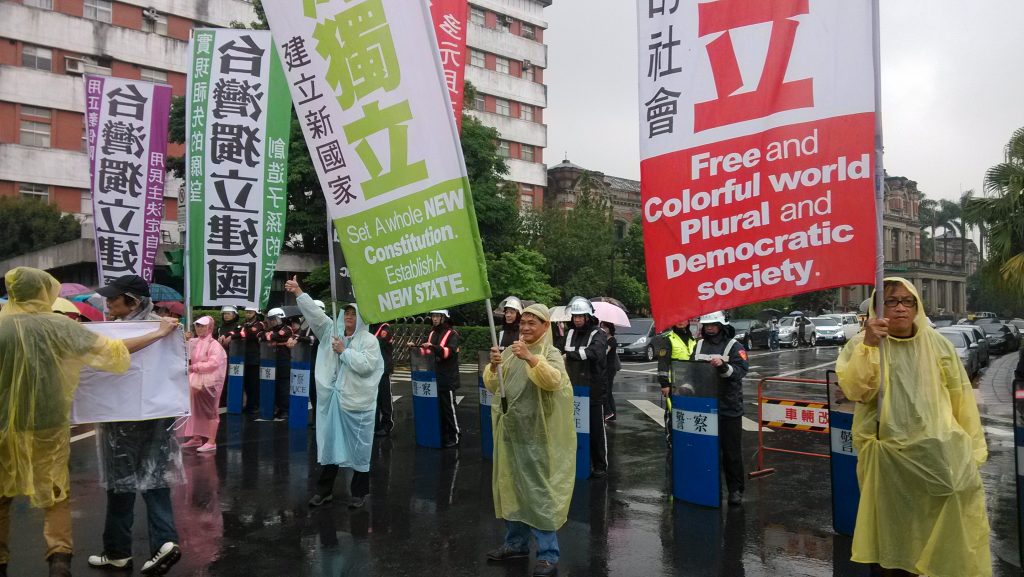 Photo credit: Brian Hioe
Photo credit: Brian Hioe
In my view, this failure to look beyond America extends to how Taiwanese-Americans conceive in general of Taiwan, whether culturally, politically, or otherwise. Obviously, it is that not all Taiwanese-Americans are economically privileged individuals—hardly so—but it strikes as that Taiwanese-Americans involved in pro-Taiwan politics of the sort involved in lobbying America to aid Taiwan often are. In part, this returns to the failure of the first generation Taiwanese immigrants involved in pro-Taiwan lobbying politics in the US to really try and outreach to Taiwanese-Americans outside of a similar upper middle class background as themselves, with emphasis focused on developing “young professionals” as the talented young people who will take over Taiwanese-American politics. Consequently, there has generally been a failure by Taiwanese organizations to appeal to the many Taiwanese-Americans who are not doctors, lawyers, in finance, or in tech. First generation immigrants have also largely not developed programs to provide Taiwanese-Americans the experiences of linguistic and cultural immersion which would allow them to know Taiwan better—namely, organizing Taiwan heritage events in the US is not enough, but direct immersion within Taiwan is probably required for any deeper understanding of Taiwan to be arrived at by second-generation Taiwanese-Americans. If anything, this strikes me as probably what resources should be devoted to by financially well-off elders wondering what they should do with their money in retirement.
With first generation Taiwanese immigrants becoming older, it is that Taiwanese-Americans have come increasingly to shape pro-Taiwan politics in the United States. The differences between Taiwanese-Americans and their older, first-generation forebears is becoming increasingly clear as a result. A new generation of overseas students has begun to participate in Taiwanese-related politics in the United States after the Sunflower Movement, when beforehand there was not such significant participation by overseas students. But in this, the differences between how overseas Taiwanese students and Taiwanese-Americans conceptualize Taiwanese politics is quite visible, even if they are largely of the same age and generation. In the larger backdrop, we are currently in the historic second DPP presidential administration and the first period of Taiwanese history in which a non-KMT political party has controlled both the presidency and the legislature and this would seem a critical point for Taiwan.
But this would be the state of pro-Taiwan politics in the United States at present. We will see as to the future direction of pro-Taiwan politics in America, then.

